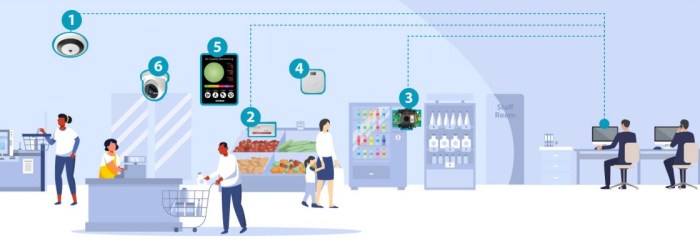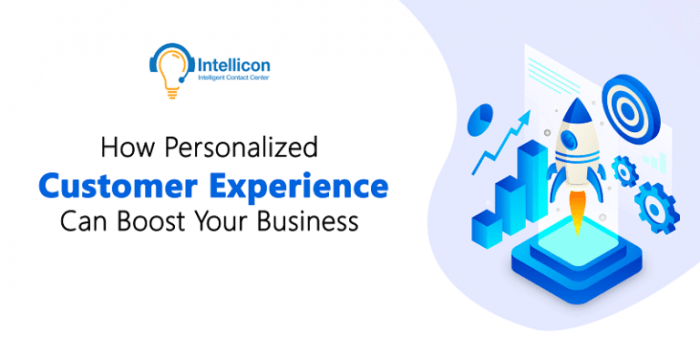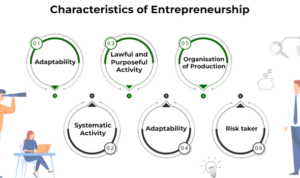Yo, diving into the world of Personalizing Customer Experiences! Get ready to explore how businesses can level up their game by creating unique connections with customers and boosting loyalty.
From the importance of personalized experiences to practical strategies and challenges, this topic is all about making those customer interactions pop!
Importance of Personalizing Customer Experiences

Personalizing customer experiences is crucial for businesses as it helps in creating a strong connection with customers, leading to increased loyalty, satisfaction, and repeat business. When customers feel valued and understood, they are more likely to develop a sense of loyalty towards a brand or company.
Impact on Customer Loyalty
- Personalized experiences make customers feel special and appreciated, leading to increased loyalty and trust.
- By understanding individual preferences and needs, businesses can tailor their products or services to better meet customer expectations, resulting in higher customer satisfaction and loyalty.
- Customers are more likely to recommend a brand to others when they have had positive personalized experiences, further increasing brand loyalty and advocacy.
Role of Technology
- Advancements in technology, such as AI and data analytics, enable businesses to collect and analyze customer data to personalize experiences effectively.
- Customized recommendations, personalized emails, and targeted advertisements are examples of how technology can enhance personalized customer experiences.
- Technology also allows businesses to track customer interactions and behaviors, providing valuable insights to improve and personalize future interactions.
Strategies for Personalizing Customer Experiences
In today’s competitive business landscape, personalizing customer experiences is essential for building lasting relationships and driving customer loyalty. By leveraging key strategies, businesses can tailor their interactions with customers to meet individual preferences and needs.
Utilizing Customer Data
One of the fundamental strategies for personalizing customer experiences is utilizing customer data effectively. By collecting and analyzing data on customer behavior, preferences, and past interactions, businesses can gain valuable insights into what each customer values and how best to engage with them. This data can be used to tailor marketing messages, recommend products or services, and provide personalized offers that resonate with each customer.
Omni-channel Approach
Another key strategy is adopting an omni-channel approach to customer experience personalization. This involves creating a seamless experience across all channels, whether online or offline, to ensure consistency and continuity in customer interactions. By integrating data from various touchpoints, businesses can provide a unified and personalized experience for customers regardless of how they choose to engage with the brand.
Real-time Personalization
Real-time personalization is also a powerful strategy for enhancing customer experiences. By leveraging data analytics and AI technologies, businesses can deliver personalized content, product recommendations, and offers in real-time based on customer behavior and preferences. This allows for dynamic and relevant interactions that cater to the individual needs of each customer.
Online vs. Offline Personalization
When comparing personalized experiences in online versus offline settings, businesses must consider the unique challenges and opportunities of each. Online personalization often relies on digital tracking tools and algorithms to deliver tailored experiences, while offline personalization may involve face-to-face interactions and personalized service from staff members. Finding the right balance between online and offline personalization is crucial for creating a holistic and seamless customer experience.
Leveraging Data Analytics
Data analytics plays a critical role in tailoring experiences for individual customers. By analyzing customer data, businesses can identify patterns, trends, and preferences that inform personalized strategies. Machine learning algorithms can help predict customer behavior and optimize personalized recommendations, ultimately enhancing the overall customer experience.
Implementing Personalization in Marketing
Implementing personalization in marketing can significantly enhance customer engagement and drive conversions. By tailoring marketing campaigns to individual preferences and behaviors, businesses can create more meaningful interactions with their target audience. This approach helps build brand loyalty and fosters long-term relationships with customers.
Integration of Personalization in Marketing Campaigns, Personalizing Customer Experiences
- Utilize customer data: Collect and analyze customer data to understand preferences, behaviors, and purchase history. This information can be used to segment customers and create personalized campaigns.
- Personalized content: Tailor marketing messages, emails, and advertisements to resonate with individual customers. Use their names, past purchases, and browsing history to create relevant content.
- Dynamic website content: Implement dynamic content on your website based on visitor behavior. Show personalized product recommendations, offers, and content to enhance the user experience.
- Personalized recommendations: Leverage recommendation engines to suggest products or services based on customer preferences. This can increase cross-selling and upselling opportunities.
Examples of Successful Personalized Marketing Initiatives
- Amazon: The e-commerce giant uses personalized product recommendations based on customer browsing and purchase history. This approach has significantly increased sales and customer satisfaction.
- Netflix: The streaming service provides personalized movie and TV show recommendations based on viewing history. This personalization has helped retain subscribers and drive engagement.
- Spotify: The music streaming platform curates personalized playlists for users based on their listening preferences. This tailored approach has led to increased user engagement and loyalty.
Challenges in Implementing Personalized Marketing Strategies
- Data privacy concerns: Collecting and using customer data for personalization can raise privacy issues. Businesses need to ensure compliance with data protection regulations and establish trust with customers.
- Data accuracy and quality: Inaccurate or outdated customer data can lead to ineffective personalization efforts. Maintaining data quality and updating customer profiles regularly is essential for successful personalization.
- Resource constraints: Implementing personalized marketing strategies requires investment in technology, resources, and skilled personnel. Small businesses may face challenges in allocating sufficient resources for personalization.
Personalization in Customer Service: Personalizing Customer Experiences
In customer service interactions, personalization plays a crucial role in enhancing the overall experience for customers. By tailoring services to meet individual needs and preferences, businesses can build stronger relationships with their customers and increase satisfaction levels.
Best Practices for Incorporating Personalization into Customer Service Processes
- Collect and analyze customer data to understand their preferences and behaviors.
- Use customer relationship management (CRM) systems to track interactions and personalize responses.
- Train customer service representatives to engage with customers on a personal level.
- Offer personalized recommendations based on past purchases or interactions.
- Implement feedback loops to continuously improve and adjust personalization strategies.
Impact of Personalized Customer Service on Overall Customer Satisfaction and Retention
Customer service that is personalized can lead to higher levels of customer satisfaction and increased loyalty. When customers feel valued and understood, they are more likely to return for future purchases and recommend the business to others. By creating a personalized experience, businesses can differentiate themselves in a competitive market and build long-lasting relationships with their customers.












